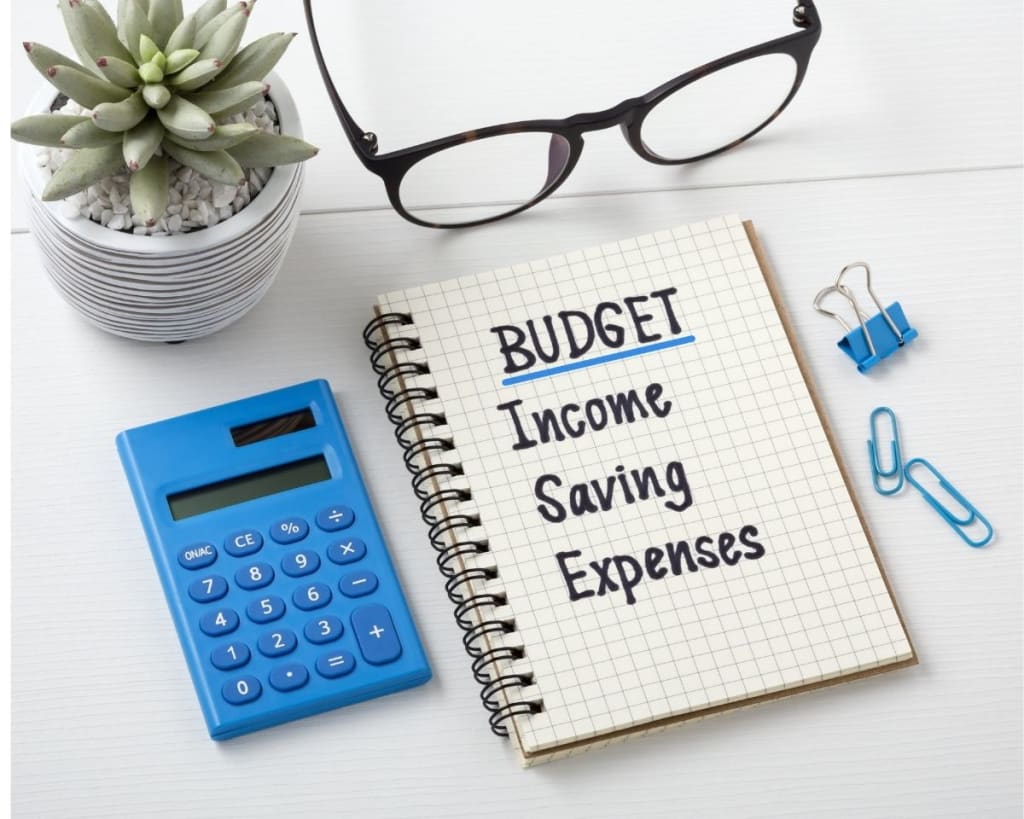The Power of Budgeting: How to Improve Your Personal Financial Status
Tips and Strategies for Creating and Sticking to a Budget

Budgeting is a crucial aspect of personal finance that can help improve our financial status. By creating and sticking to a budget, we can better manage our money, avoid overspending, and achieve our financial goals. In this article, we will discuss the importance of budgeting and provide tips for creating and sticking to a budget.
Why is budgeting important?
Budgeting is important for several reasons. First and foremost, it helps us understand where our money is going. By tracking our expenses and income, we can identify areas where we may be overspending or areas where we can cut back. This knowledge is crucial in making informed financial decisions.
Budgeting also helps us plan for the future. By setting financial goals and creating a plan to achieve them, we can work towards financial security and stability. Whether it’s saving for a down payment on a house, paying off debt, or building an emergency fund, budgeting can help us achieve these goals.
Finally, budgeting can reduce financial stress. When we have a plan for our money and are in control of our finances, we can feel more secure and less anxious about our financial situation.
Tips for creating a budget:
Determine your income: The first step in creating a budget is to determine your income. This includes your salary, any additional income sources, and any government benefits you may receive.
Track your expenses: Next, track your expenses over a period of time, such as a month. This will give you an idea of where your money is going and where you may be overspending.
Categorize your expenses: Once you’ve tracked your expenses, categorize them into essential and non-essential expenses. Essential expenses include things like rent/mortgage, utilities, food, and transportation. Non-essential expenses include things like entertainment, dining out, and shopping.
Set financial goals: Based on your income and expenses, set financial goals for yourself. This may include paying off debt, building an emergency fund, or saving for a specific purchase.
Create a budget: Using the information you’ve gathered, create a budget that includes your income, essential expenses, non-essential expenses, and financial goals. Make sure your expenses do not exceed your income and adjust your budget as necessary.
Tips for sticking to a budget:
Use cash: Using cash for non-essential expenses can help you stick to your budget. Withdraw a set amount of cash each week for things like entertainment and dining out, and once it’s gone, don’t spend any more until the next week.
Keep track of your spending: Use a budgeting app or a spreadsheet to track your spending and make sure you’re staying within your budget.
Make adjustments: If you find you’re consistently overspending in a certain category, adjust your budget to make sure you’re not exceeding your income.
Review your budget regularly: Review your budget regularly to make sure you’re on track to achieve your financial goals. If you’ve achieved a goal, set a new one and adjust your budget accordingly.
Stay motivated: Sticking to a budget can be challenging, but staying motivated can help. Remind yourself of your financial goals and the progress you’ve made towards achieving them. Celebrate small victories along the way to keep yourself motivated.
Avoid impulsive purchases: Impulse purchases can derail even the most well-planned budget. Before making a purchase, ask yourself if it’s essential and if it fits within your budget. If it’s not necessary, consider waiting and reevaluating your budget before making the purchase.
Be mindful of recurring expenses: Recurring expenses, such as subscriptions or memberships, can add up quickly and may be easy to overlook in a budget. Review your recurring expenses regularly and cancel any that are no longer necessary or not within your budget.
Involve your family or partner: If you have a family or partner, involve them in the budgeting process. Discuss financial goals together and work as a team to create and stick to a budget.
Plan for unexpected expenses: Even with a well-planned budget, unexpected expenses can arise. Plan ahead by building an emergency fund that can cover unexpected expenses without derailing your budget.
Seek help if needed: If you’re struggling with creating or sticking to a budget, don’t hesitate to seek help. A financial advisor or credit counselor can provide guidance and support to help you achieve your financial goals.
In summary, budgeting is a powerful tool that can help improve our personal financial status. By following the tips outlined in this article, you can create and stick to a budget that aligns with your financial goals and helps you achieve financial security and stability. Remember to stay motivated, be mindful of recurring expenses, plan for unexpected expenses, involve your family or partner, and seek help if needed. With dedication and discipline, you can take control of your finances and achieve your financial goals.
About the Creator
Enjoyed the story? Support the Creator.
Subscribe for free to receive all their stories in your feed. You could also pledge your support or give them a one-off tip, letting them know you appreciate their work.





Comments
There are no comments for this story
Be the first to respond and start the conversation.